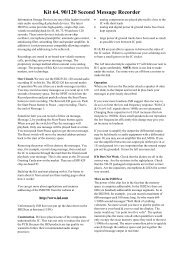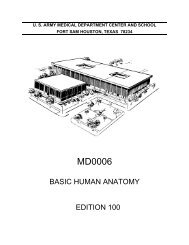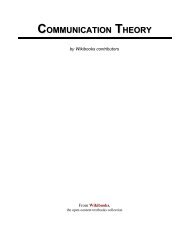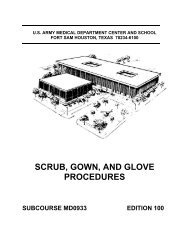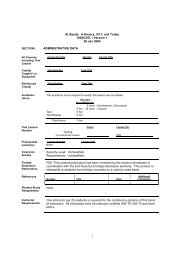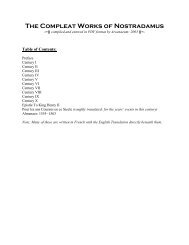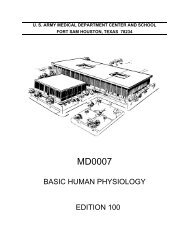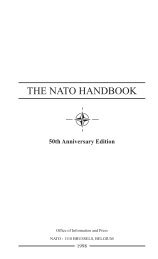Download This File - The Free Information Society
Download This File - The Free Information Society
Download This File - The Free Information Society
You also want an ePaper? Increase the reach of your titles
YUMPU automatically turns print PDFs into web optimized ePapers that Google loves.
successful programs in the United States. <strong>The</strong> marine law<br />
enforcement operations grew from the DEA’s close coordination<br />
with the U.S. Coast Guard, while vehicular interdiction<br />
originated from the DEA’s Operation Pipeline, EPIC’s national<br />
highway interdiction program.<br />
With DEA support, Bolivian troops burned a cocaine<br />
conversion lab.<br />
Carlos Lehder Extradition<br />
(1987)<br />
In 1981, Carlos Lehder was indicted on U.S. federal charges in<br />
Jacksonville, Florida, and a request for his extradition from<br />
Colombia was formally presented to that government in 1983.<br />
Up until that time, no extradition requests had been honored<br />
by the Colombian Government. Lehder, a major cocaine<br />
trafficker, had formed his own political party and adopted a<br />
platform which was vehemently opposed to extradition. He<br />
viewed cocaine as a very powerful weapon that could be used<br />
against the United States and referred to the substance as an<br />
atomic bomb. Lehder also claimed that he was allied with the<br />
Colombian guerilla movement, M-19, in an effort to protect<br />
Colombian sovereignty.<br />
Fanatical in his efforts to prevent extradition, Lehder was<br />
instrumental in forcing a political debate on the merits of<br />
extradition and publicly faced off against Colombia’s Justice<br />
Minister, Rodrigo Lara-Bonilla. When Lara-Bonilla was suddenly<br />
murdered in 1984, Lehder and the Medellin cartel, who<br />
had hidden behind the pseudonym “<strong>The</strong> Extraditables,” were<br />
suspected. Embarrassed and outraged by the terrorist tactics<br />
employed by the Medellin organization, the Colombian Government<br />
turned Lehder over to the DEA and extradited him to<br />
the United States in February 1987. Lehder was convicted and<br />
sentenced to 135 years in federal prison. He subsequently<br />
cooperated in the U.S. investigation of Panama dictator Manuel<br />
67<br />
Carlos Lehder<br />
conceived the<br />
idea of<br />
transporting<br />
loads of cocaine<br />
from Colombia to<br />
the United States.<br />
Noriega and received a reduced sentence in return for his<br />
testimony. However, the Medellin reign of terror did not end.<br />
<strong>The</strong> Medellin cartel was responsible for the murders of many<br />
government officials, including Attorney General Carlos Mauro<br />
Hoyos-Jiminez in 1988, and presidential candidate Luis Carlos<br />
Galan in 1989.<br />
<strong>The</strong> Anti-Drug Abuse Act of<br />
1988<br />
<strong>The</strong> 1988 Anti-Drug Abuse Act (PL 100-690) increased criminal<br />
penalties for offenses related to drug trafficking and<br />
created new federal offenses and regulatory drug control<br />
requirements. Federal funding for state and local drug enforcement<br />
grant programs were also bolstered under this law.<br />
<strong>The</strong> 1988 Anti-Drug Abuse Act also expanded a change to the<br />
certification process established by the 1986 Anti-Drug Abuse<br />
Act. <strong>The</strong> 1986 legislation required all certified countries to<br />
sign a treaty with the United States that addressed drug<br />
eradication, interdiction, demand reduction, chemical control,<br />
and cooperation with U.S. drug enforcement agencies. <strong>The</strong><br />
1988 act went a step further and made it unlawful to certify a<br />
country’s compliance unless it had signed such a treaty.<br />
Another requirement called for the Secretary of the Treasury<br />
to initiate negotiations with governments whose banks were<br />
known to engage in significant U.S. dollar transactions. <strong>This</strong><br />
requirement helped to identify money laundering and illicit<br />
drug transaction funds.<br />
Perhaps the most significant provision of this legislation was<br />
the creation of the Office of National Drug Control Policy<br />
(ONDCP) and it’s director, the “Drug Czar.”



